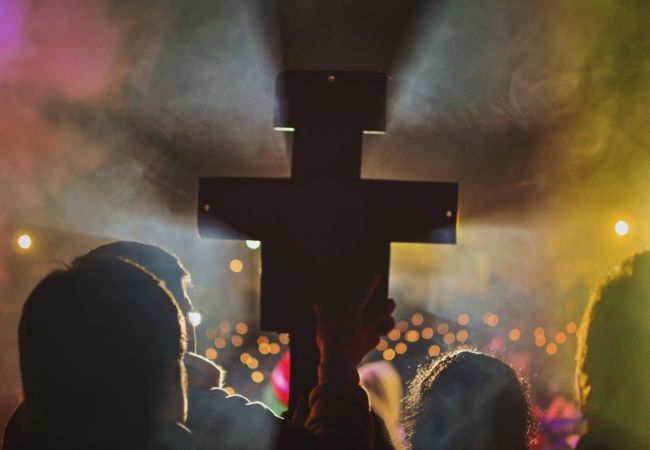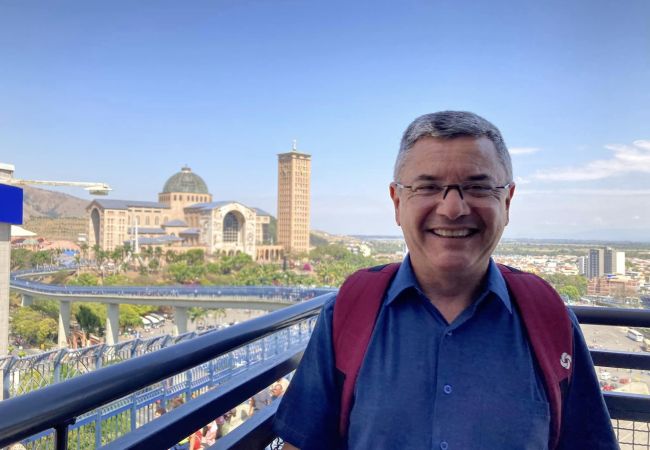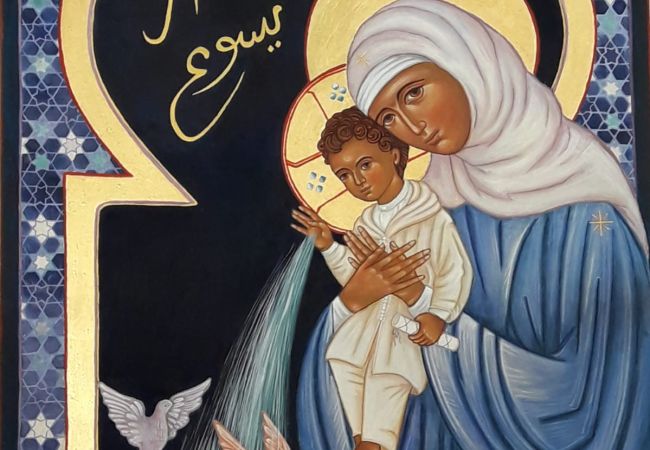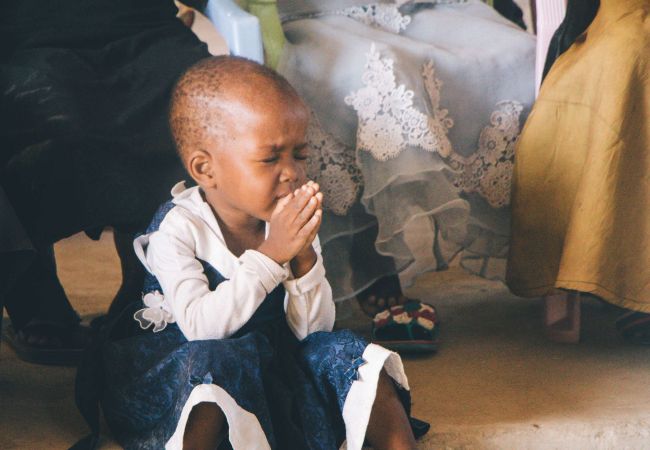Convegno Formatori dell’Anno Propedeutico, della Filosofia e dei Maestri di Noviziato dell’Asia- Jakarta, March 2016
LA FORMAZIONE SAVERIANA OGGI IN ASIA
(P. Luigi Menegazzo, sx – Superiore generale)
«La ricerca di Dio, una vita di comunione e il servizio agli altri sono le tre caratteristiche principali della vita consacrata, che possono offrire una attraente testimonianza cristiana ai popoli dell’Asia oggi» (Ecclesia in Asia, 44).
Cari confratelli,
benvenuti a questo Convegno dei Formatori dell’Asia. Ringrazio, in modo speciale, il Superiore Regionale dell’Indonesia che ci accoglie con gentilezza e fraternità. Sono certo che saranno giorni di lavoro molto utile per la nostra Famiglia, la quale, da sempre, seguendo gli insegnamenti del Fondatore, vede nella Formazione dei nuovi Saveriani, una delle sue attività principali. S. Guido M. Conforti stesso, infatti, desiderava passare i suoi ultimi anni nella formazione di nuovi missionari:
Dal canto mio non domando che di potermi ritirare nella solitudine del mio Istituto per le Missioni, ove impiegherò il resto de’ miei giorni, che non possono essere molti, nell’educare tanti cari giovani anelanti alle pacifiche conquiste della fede ed al martirio. E’ questa l’unica mia aspirazione su questa terra. (Antologia Confortiana, Formazione, 45)
Iniziamo anche noi questo Convegno con l’intenzione di cercare il meglio per i giovani che, in Asia, chiedono di unirsi alla nostra Famiglia Missionaria e Religiosa, per essere annunciatori di Gesù Cristo.
ASPETTI DA TENERE PRESENTI NELLA FORMAZIONE DI BASE IN ASIA
Nella Ecclesia in Asia, 42 si afferma che nel Continente asiatico:
“Le persone sono persuase più dalla santità della vita che dagli argomenti intellettuali”.
Al n. 20 viene riconosciuta:
“L’impellente necessità che le Chiese locali in Asia hanno di presentare il mistero di Cristo ai loro popoli secondo i criteri culturali e i modi di pensare di questi, sottolineando pure che una tale inculturazione della fede nel Continente coinvolge una riscoperta del volto asiatico di Gesù”.
Le grandi e millenarie tradizioni culturali e religiose asiatiche e anche la particolare attenzione che la nostra stessa Famiglia ha rivolto a questo Continente, sono un efficace stimolo per riflettere su alcuni aspetti concernenti la Formazione di Base.
Percezione del Sacro
I Paesi asiatici dove, noi Saveriani, siamo presenti, sono ricchi di profonde tradizioni religiose che, ancora oggi, rappresentano il vero sostegno etico di questi popoli. Le loro modalità di espressione, però, sono in parte cambiate. L’incontro con altre culture, soprattutto quelle occidentali, rende difficile la loro genuina sopravvivenza, poiché la modernità tenta di sostituire la contemplazione con il positivismo. Eppure, queste grandi tradizioni sono, ancora, l’anima portante dei popoli: induismo, buddhismo, shintoismo, islamismo, cristianesimo, religioni autoctone. Il laicismo, l’ateismo, l’indifferenza religiosa sono presenti e, a volte, anche in maniera considerevole, eppure, nel profondo della loro cultura è perseverante e determinante la tendenza al Sacro.
Questa riflessione intende evidenziare un’importante considerazione per la Formazione di Base in Asia e che riguarda, in modo diretto, il Formatore e la comunità formativa. Mi spiego: il Sacro è una presenza vera e costante, che si presenta attraverso forme e intensità differenti. Questa presenza non va sottovalutata o ignorata. Il Sacro non informa solo il modo di pensare e i progetti personali. Il Sacro non è una presenza astratta, ma trova dimora nella natura, nelle città e nelle cose. Il Sacro è ovunque. La percezione del Sacro, che riteniamo sia sperimentata, in modo speciale, nelle culture dell’Asia, chiede al Formatore e alla comunità formativa, una delicatezza d’animo del tutto speciale. La gentilezza presente attorno al formando, favorisce la disposizione a mostrarsi con sincerità e senza timore. Al contempo, la stessa delicatezza d’animo del Formatore e della comunità formativa permettono, anche, un più accurato discernimento vocazionale.
La gentilezza è un dono dello Spirito Santo, è una attitudine da cercare e chiedere con insistenza al Signore. Così come il Sacro parla ovunque, pervade tutto, informa ogni cosa, così anche la gentilezza deve permeare ogni attitudine e ambiente delle nostre case di formazione.
Infine, ricordiamo che Dio parla nel “mormorio di un vento leggero” (1Re 19,12). Il Sacro si manifesta nella normalità della vita, non nell’avvenimento eccezionale. Il Sacro lo scopriamo nella quiete dell’animo, non nella esaltazione o nella confusione. In Asia il Formatore deve essere attento alle varie manifestazioni del Sacro e a come esse vengono accolte, interpretate e interiorizzate dal formando.
Armonia
Questo, forse, è il termine più usato per esprimere la peculiarità culturale dell’Asia. Personalmente, ho qualche dubbio che questo termine possa simboleggiare, universalmente, una sintesi delle culture asiatiche, anche se è necessario tenerlo bene in mente per quanto riguarda i Paesi asiatici dove, noi Saveriani, abbiamo la Formazione di Base. Armonia indica un intimo desiderio di ordine, di non-contrapposizione con gli altri, di pacifica convivenza nella quale gli equilibri vengono mantenuti e i confini rispettati. L’armonia, quindi, assomiglia ad una forma di diplomazia spirituale e sociale, il cui scopo è la serena convivenza e la mancanza di reciproche ingerenze.
Una forte considerazione del privato è quello che esprime maggiormente il concetto di Armonia. L’individuo ha un suo mondo personale ben protetto, che rivela solo in parte e molto raramente agli altri. È in questo mondo privato che lui trova rifugio e consolazione.
La Vita Consacrata è, a sua volta, fonte di Armonia. Il Consacrato si relaziona armonicamente con Dio, riconoscendolo come sua unica guida e creando relazioni sincere con i fratelli con cui condivide la medesima vocazione. Il Formatore è chiamato a far maturare la vera Armonia nella vita del formando, guidandolo all’apertura verso gli altri confratelli e, specialmente, alla fiducia nei formatori.
È noto che, in molte culture asiatiche, il salvare la faccia è uno dei massimi imperativi sociali. Questo va tenuto in gran conto, ma perfezionato con la fede in Cristo, che guidava severamente i suoi discepoli, affinché non smarrissero la strada. In una comunità di formazione, perciò, l’Armonia deve tradursi in una graduale ed equilibrata ricerca del meglio, del più, del perfetto, al fine di accogliere con gratitudine e umiltà la guida e, quando fosse necessario, anche il richiamo del Formatore.
Le grandi tradizioni asiatiche insegnano che è attraverso la guida di un maestro che il discepolo diviene a sua volta maestro. Eppure, questo, difficilmente si riscontra nella vita quotidiana e in modo particolare nelle comunità di vita consacrata. Una eccessiva auto-protezione impedisce il vero discepolato e la docilità. La sequela di Cristo è molto esigente, più di qualsiasi altro tipo di discepolato, perché, chi vuole seguire Cristo “deve comportarsi come lui si è comportato” (1Gv 2,6). Il Formatore ha il delicato compito di guidare l’animo dei formandi verso una esperienza di Fede, che illumini la vera essenza dell’Armonia con Dio e con i fratelli. Essa non è frutto di equilibrio nei rapporti reciproci, ma di abbandono in Dio e di apertura, stima e fiducia reciproca.
LE COMUNITÁ FORMATIVE SX IN ASIA
Mons. Conforti rispondeva con le queste parole ad alcune osservazioni sulla costruzione del nuovo Seminario di Parma, ritenuta da alcuni sacerdoti un po’ lussuosa:
“È stato detto che si è voluto nella costruzione del nuovo Seminario troppo lusso; che si poteva risparmiare la cancellata all’intorno; si potevano risparmiare le colonne in marmo. A questo rispondo che la cancellata è stata imposta dal Comune come condizione sine qua non e che le colonne, tutto considerato, vengono a costare quanto possono costare colonne di cemento o di mattone, con questo che si avvantaggiano sopra delle altre in eleganza e solidità. Del resto è bene che una casa di educazione nulla lasci di desiderare in fatto di proprietà, giacché tutto serve ad educare il giovane. (Antologia Confortiana, Formazione, 19)
Prendiamo spunto da questa citazione per alcune brevi riflessioni che ritengo importanti per una comunità formativa in Asia.
Sobrietà ed eleganza
Un ambiente fisico e umano semplice, pulito, accogliente e scrupoloso nei particolari è di grande aiuto alla formazione dei futuri Saveriani. Il disordine, il pressapochismo nella organizzazione e manutenzione della casa, la confusione e la poca attenzione reciproca favoriscono l’individualismo e questo, a sua volta, rovina sia il rapporto con Dio che con i fratelli. L’accoglienza, non riguarda semplicemente l’arrivo di un ospite, ma prima di tutto, riguarda il fratello che vive nella stessa comunità. È per lui che siamo attenti a usare un linguaggio adeguato, a conservare pulito e ordinato l’ambiente, a non trascurare anche il più piccolo particolare che possa essere di aiuto per pregare bene, per vivere serenamente il momento dei pasti, dell’incontro comunitario e della ricreazione. In diverse culture asiatiche l’accoglienza è considerata un’arte: l’espressione più autentica della filosofia estetica. Infatti, la vera estetica non è una composizione esterna a noi, ma un atteggiamento dell’animo che riesce a mettere l’altro a suo agio e fargli gustare un momento di pace interiore. Che le nostre comunità formative in Asia abbiano sempre presente l’insegnamento del Fondatore, persona gentile e affabile, educata e sensibile, perfettamente riassunto in queste sue parole: “Amatevi come fratelli e rispettatevi come principi”.
Buona organizzazione interna
Ogni ruolo è un servizio che, quando è svolto con precisione e fedeltà, diventa motivo di serenità e di progresso. All’interno della comunità formativa i ruoli sono molti e tutti di grande importanza. Il pressapochismo, la mediocrità, la poca attenzione nello svolgimento del ruolo affidato causa squilibri e incertezze nella vita comunitaria. Il ruolo del gruppo, dell’autorità, della collaborazione e del sostegno reciproco è particolarmente sentito nelle diverse culture asiatiche. Per noi, ogni servizio nella comunità, riceve, anche, un significato ecclesiale: ci sosteniamo a vicenda per seguire fedelmente Cristo e vivere coerentemente la nostra vocazione. L’orario, il senso di responsabilità verso la comunità, la puntualità agli impegni presi, la fedeltà alle regole comuni sono come un’ascesi che ci prepara a saper progettare insieme, vivere insieme e condividere tutto anche quando la formazione di base sarà terminata.
Il silenzio
Che le comunità di formazione, favoriscano i tempi di silenzio. Questo non va inteso solamente come regola per il buon vivere in comunità, ma come un’attitudine alla riflessione e alla meditazione. Il silenzio, inoltre, deve essere concepito anche come uno stile di autocontrollo, che dona dignità alle cose che facciamo e di nobiltà all’ambiente in cui viviamo. Le nostre comunità formative si trovano in metropoli rumorose, inquinate e frenetiche. Che almeno nelle comunità di formazione di futuri missionari e religiosi, si possa ritrovare quel silenzio, quella educazione e rispetto che sono sempre stati e, forse lo sono ancora, aneliti profondamente radicati in molte culture dell’Asia!
CONCLUSIONE
La formazione di base, in qualunque Continente si svolga, ha lo scopo di formare Saveriani che servano la Missione fedeli al carisma. Ringraziamo il Signore per la varietà dei doni con cui nutre e sostiene la nostra Famiglia. Con l’augurio che questo Convegno favorisca l’unità dei doni, delle culture, delle sensibilità, senza nasconderci la necessità di aderire fedelmente a cosa significhi essere Saveriani. In questo ci aiuta la RFX, sulla quale ci confronteremo. Continuiamo il nostro lavoro presente e futuro con fiducia.
Buon lavoro.
Luigi Menegazzo
Jakarta 3 marzo 2016
Conference of Formators of the Introductory year, Philosophy and Novice Masters in Asia – Jakarta, March 2016
XAVERIAN FORMATION IN ASIA TODAY
(Fr. Luigi Menegazzo – General Superior)
«The search for God, a life of fraternal communion, and service to others are the three chief characteristics of the consecrated life which can offer an appealing Christian testimony to the peoples of Asia today» (Ecclesia in Asia, 44).
Dear brothers,
I welcome you all to this Asian Formators Meeting. A special word of thanks to the Regional Superior of Indonesia for his warm and fraternal welcome. I am sure that these will be days of very useful work for our Family, which, following the teachings of the Founder, has always considered the Formation of new Xaverians as one of its priority activities. Indeed, St. Guido M. Conforti himself wanted to spend his final years in the formation of new missionaries:
On my part, I ask only to be allowed to retire to the solitude of my Institute for the Missions where I shall spend the rest of my days, which shall probably not be many, in the education of the young people who aspire to the peaceful conquests of the faith and martyrdom. This is my only aspiration upon this earth.
(Conforti Anthology, Formation, 45)
Let us, too, begin this Meeting with the intention of seeking what is best for the young Asian candidates who ask to join our Missionary and Religious Family to become messengers of Jesus Christ.
ASPECTS TO BEAR IN MIND IN INITIAL FORMATION IN ASIA
Speaking of the Asian context, paragraph 42 of Ecclesia in Asia states:
“people are more persuaded by holiness of life than by intellectual argument”.
Paragraph 20 acknowledges:
“the pressing need of the local Churches in Asia to present the mystery of Christ to their peoples according to their cultural patterns and ways of thinking. They pointed out that such an inculturation of the faith on their continent involves rediscovering the Asian countenance of Jesus”.
The great and ancient traditions cultural and religious of Asia, and the special attention our own Family has dedicated to this Continent, are a powerful stimulus for our reflection on some aspects that concern Initial Formation.
Perception of the Sacred
The Asian countries in which the Xaverians are present are rich in profound religious traditions that still represent their true ethical foundations. However, the ways in which they are expressed have undergone some changes. The encounter with other cultures (especially Western cultures) represents a threat to their genuine survival because modernity tires to substitute contemplation with positivism. Nevertheless, these great traditions are still the living soul of the people: Hinduism, Buddhism, Shintoism, Islamism, Christianity and autochthonous religions. Secularism, atheism and religious indifference are present (sometimes to a considerable degree), yet sensitivity to the Sacred is still at the heart of their culture and continues to play a decisive role.
This reflection aims to highlight an important consideration for Initial Formation in Asia that directly concerns the Formator and the formative community. Allow me to explain: the Sacred is a true and constant presence that reveals itself in different forms and degrees of intensity. This presence should not be underestimated or ignored. The Sacred does not only shape how people think and make personal plans. The Sacred is not an abstract presence: it dwells in nature, in the cities and, indeed, in all things. The Sacred is everywhere. The perception of the Sacred, which we believe is keenly felt especially in the cultures of Asia, calls upon the Formator and the formation community to cultivate a very delicate and sensitive heart. The benevolence we show to candidates in formation encourages them to reveal themselves with sincerity and without fear. At the same time, it enables us to carry out a more rigorous vocational discernment.
Benevolence is a gift of the Holy Spirit; we must pray insistently for this gift and cultivate it as an attitude. Just as the Sacred speaks everywhere, pervades and shapes everything, so too must benevolence permeate every activity in our formation houses.
Finally, let us remember that God speaks in the “sound of sheer silence” (1K 19:12). The Sacred reveals itself in the normality of life, not in extraordinary events. We discover the Sacred in the quiet of the heart, not in elation or confusion. In Asia, Formators must be attentive to the various manifestations of the Sacred and how they are received, interpreted and internalized by those in formation.
Harmony
This is, perhaps, the most frequently used word to describe the peculiar cultural of Asia. Personally, I have some doubts about whether this word can universally signify the essence of Asian cultures, even though we must bear it in mind in the Asian countries where we Xaverians work in Initial Formation. Harmony indicates an intimate desire for order, peaceful coexistence and the absence of conflict, in which the respect of boundaries is a guarantee of balance. Harmony, therefore, resembles a form of spiritual and social diplomacy, whose purpose is serene coexistence and non-intrusion.
A strong emphasis on privacy is an important aspect of the concept of Harmony in Asia. The individual has his own, well-protected personal world that is only partially (and rarely) revealed to others. The individual finds refuge and consolation in this private world.
The Consecrated Life is also a source of Harmony. The Consecrated person relates harmoniously with God, by acknowledging Him as his sole guide and by building sincere relationships with the brothers with whom he shares the same vocation. The Formator is called to stimulate the candidates to a true growth in Harmony, by guiding them to openness to the other confreres and, especially, to trust in the Formators.
It is well known that saving face is one of the greatest social imperatives in many Asian cultures. This should be kept in mind, but it also needs to be perfected through faith in Christ, who serenely guided his disciples to ensure they would not stray from the right path. In a formation community, therefore, Harmony must be made visible in a gradual and balanced quest for what the best, the magis and the perfect, helping candidates to accept the Formator’s guidance and, when necessary, admonishment, with gratitude and humility.
The great Asian traditions teach that it is through the guidance of a Master that a disciple becomes a Master in turn. Nevertheless, this is difficult to find in daily life, especially in communities of consecrated life. Excessive self-protection is an obstacle true discipleship and docility. The sequela Christi is far more demanding than any other type of discipleship because anyone who wishes to follow Christ “must act as he acted” (1Jn 2:6). Formators have the delicate task of guiding the heart of each candidate towards an experience of Faith that enlightens the true essence of Harmony with God and with the brothers. It is not the result of balanced mutual relationships; it is, instead, a matter of abandoning oneself to God and openness, esteem and mutual trust.
THE XAVERIAN FORMATION COMMUNITIES IN ASIA
Bishop Conforti replied with the following words to some observations on the construction of a new Seminary in Parma, which some priests believed to be somewhat luxurious:
“It has been said that the new Seminary is too luxurious[1]; that we could have spared erecting railings around it and its marble pillars. In reply, I must say that the railings were imposed by the town council as a sine qua non condition and that the pillars, all things considered, cost just as much as cement or brick pillars, but have the advantage of being more elegant and solid. Besides, it is good that a house of formation should not lack anything as regards propriety since everything serves to form the young. (Conforti Anthology, Formation, 19)
Let us take these words as a starting point for some brief reflections that I believe to be important for a formation community in Asia.
Moderation and elegance
A physical and human environment that is simple, clean, welcoming and thoroughly attentive to details is a great help in the formation of future Xaverians. Disorder and sloppiness in the organization and maintenance of the house, along with confusion and lack of mutual acceptance, promote individualism, which, in turn, ruins our relationship with God and with the brothers. Hospitality does not only concern the arrival of a guest, but, first and foremost, the brothers who live in the same community. It is for their sake that we ensure we speak in an appropriate manner, keep the house clean and tidy, attend to even the smallest detail that can help us to pray well, promote a serene atmosphere during meals, community meeting and recreation. In various Asian cultures, hospitality is considered an art: the most authentic expression of aesthetical philosophy. Indeed, true aestheticism is not something external to us, but an attitude of the heart that puts others at ease and helps them to savor a moment of inner peace. May our formation communities in Asia always bear in mind the teaching of the Founder, who was a kind and affable, polite and sensitive person, as is perfectly summed up his own words: “Love each other as brothers, respect each other as princes”.
Good internal organization
Every role is a service that becomes a source of serenity and progress, provided it is carried out diligently and faithfully. There are many roles in a formation community and all of them are very important. Sloppiness, mediocrity and carelessness in carrying out a role that has been entrusted to us leads to imbalance and uncertainty in community life. The role of the group, authority, collaboration and mutual support is keenly felt in the various Asian cultures. For us, every service in the community is also endowed with an ecclesial meaning: we support each other in order to follow Christ faithfully and live our vocation consistently. The timetable, the sense of responsibility towards the community, and fidelity to commitments and the rules, are a form of asceticism that trains us to plan together, live together and share everything, even after the end of initial formation.
Silence
Our formation communities must provide times for silence. This should not be only understood as a rule for a good community life, but as a habit of reflection and meditation. Furthermore, silence must be looked upon as a form of self-control, which bestows dignity upon the things we do, and a touch of nobility to the house in which we live. Our formation communities live in large, noisy, polluted and hectic cities. May silence be found at least in the communities where future religious and missionaries are formed, along with the politeness and respect that have always been (and perhaps still are) a deeply rooted yearning in the cultures of Asia!
CONCLUSION
In whatever Continent it is done, initial formation aims to form Xaverians to serve the Mission in fidelity to our charism. We thank the Lord for the variety of gifts with which He nourishes and sustains our Family. We hope that this Meeting will promote the unity of gifts, cultures and sensitivities, without ignoring the necessity of faithfully adhering to what it means to be Xaverians. We are helped in this endeavor by the RFX with which we will be comparing ourselves. Let us continue our present and future work with confidence.
I wish you all a fruitful Meeting.
Fr. Luigi Menegazzo, sx
Jakarta, March 3, 2016
Link &
Download
Accedi qui con il tuo nome utente e password per visualizzare e scaricare i file riservati.





